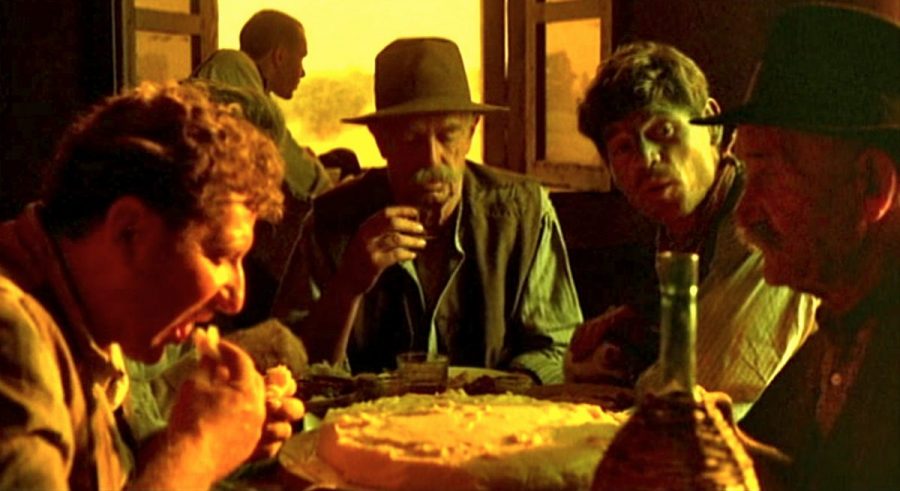Available on Blu-Ray
In a world used to multi-season boxset binge viewing the five hours of Novecento (1900) should be a doddle and in no way intimidating. We open in a bucolic 1945, and from the outset the locations and mise en scene are lavish – gorgeously photographed by Vittorio Storaro in this flawless Eureka Masters of Cinema two-disc presentation. From the beginning it’s obvious that we are in the presence of a very great filmmaker and, it seems at first, a very great film.
It’s a story of two boys Alfredo and Olmo born at beginning of the century. The two grandfathers celebrate the births; one is the disciplinarian padrone (Burt Lancaster) the other his foreman (Sterling Hayden). We then follow their lives as they diverge and as the boys mature and grow old. It’s a story of change, of exploitation and ugly droit du seigneur, economic and political upheaval. The century’s mechanisation introduces a hay-making machine to the joy of the plantation owner and worry of his workers. The film tells of the layabout rich and the working poor and the latter’s refusal to give up the land they have worked so hard for. Its politics in today’s post-communist world can look a tad quaint. As his grandfather says to Olmo, he may be able to learn to read and write but he will always remain a peasant.
Add to this assorted bloodletting and feuds (and depictions of animal cruelty) and you begin to feel that there’s just too much going on. It also helps if you know something of 20th century Italian history – of the Blackshirts and rise of Mussolini and the struggles of right and left that bedevil Italy even today.
Before the film was released (even after severe cuts) it was heralded as one of the greatest cinematic events for years but was savaged by the critics who said it was an epic only by dint of its length. Even in this sumptuous, restored Blu-Ray its reputation as a flawed masterpiece is evident. The international cast (a very young Robert De Niro, an unrecognisably square-jawed Gérard Depardieu and Donald Sutherland playing an almost comically fascist villain), ravishing photography, dialogue in English, sweeping camerawork and wonderful orchestral score by Ennio Morricone can’t entirely save it. And yet it is so watchable.
The storyline’s often bloated and portentous, too repetitive, often too slow and many scenes are achingly long. The binary division between the rich, gentrified landowners (bad) and downtrodden peasants (good) always on the march begins to grate. Some of the sexual politics (which must have seemed daring for the 1970s, Bertolucci was famous for his earlier controversial Last Tango in Paris) now look nasty and perverse. And yet…
Viewed boxset-style in hour-long chunks 1900 is truly rewarding, it has some wonderful moments of pure cinema, some intoxicating sequences and some unforgettable imagery.
